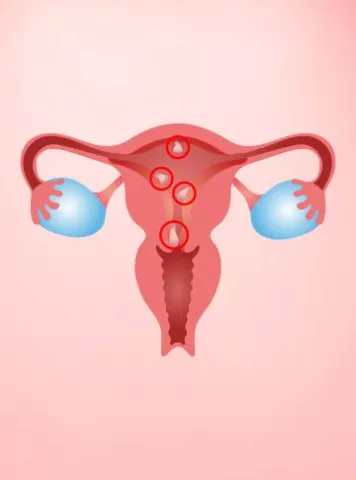You cannot afford to underestimate the effects of thyroid on the most basic functions of your body – especially during pregnancy. The thyroid is a butterfly-shaped organ, placed in the front of your neck that releases hormones that regulate your heart rate, metabolism, nervous system, weight, temperature, and many other processes in the body. Thyroid hormones regulate metabolism and affect nearly every organ in the body. Thyroid hormone is essential during pregnancy, for both the development of a healthy baby and the sustenance of the mother’s health.
Dr Uday (INDIRA IVF HOSPITAL) explained, “For starters, let’s understand what the abnormality of Thyroid, i.e., Hyperthyroidism and Hypothyroidism is. Hypothyroidism leads to a decrease in hormone secretion, whereas Hyperthyroidism leads to an increase in hormone production. Hyperthyroidism can speed up the body’s functions, and hypothyroidism can slow them down. According to statistics, over 12% of the population suffers from abnormal Thyroid – 60% of which is unaware of it. Adding to those numbers, women are five to eight times more likely than men to have thyroid problems”.
Like all the systems of our body, thyroid hormones play a critical role during pregnancy. The functional development of a baby and maintaining the health of the mother can be credited to a regulated and healthy thyroid. An abnormal Thyroid can create issues in reproduction at every stage of pregnancy. Poor fetal growth, premature birth, and stillbirth can all be the causes of unchecked Thyroid. It is possible for women with thyroid problems to have a healthy pregnancy. They can protect their fetuses’ health by learning about pregnancy’s effect on the thyroid, keeping current on their thyroid function testing, and taking the required medications.
The abnormalities of the thyroid during pregnancy in the following ways:
Hypothyroidism: Decreased secretion of thyroid hormones affects embryo development and ovulation. It may also be because of an underlying autoimmune disorder that affects fertility.
Hyperthyroidism: Excess secretion of thyroid hormone can cause increased blood pressure and a souring risk of miscarriage, along with premature birth and undeveloped baby.
Firstly, if you conceive without keeping your Thyroid in check, let your doctor know right away. As close monitoring of Thyroid levels during the initial weeks can lessen the risk of miscarriage and other fatalities, thereby promoting normal fetal development and improving the health of the baby. A baby’s brain and nervous system critically need the thyroid hormones.
Thyroid and Pregnancy
The diagnose of thyroid problems can be fundamentally tricky during pregnancy due to the increased thyroid size, higher levels of thyroid hormone in the blood, fatigue, and other symptoms which are common to both Thyroid and Pregnancy disorders.
The fetus gets its thyroid supply from the mother during the first 90 days of pregnancy, which makes its way via placenta. The baby’s thyroid comes to its function at around twelve weeks. During pregnancy, the thyroid enlarges slightly, but not enough to be detected by a physical exam. However, a noticeably enlarged thyroid can be a sign of thyroid disease and should be evaluated.
How thyroid during pregnancy affect baby :
- Weakened Heart/Total heart failure
• Worsened symptoms of thyroid
• Miscarriage
• Premature delivery
• Preeclampsia
• Low birth-weight of the child
• Decreased red blood cells in the body
• Still Birth
Be prepared for more clinic visits of you are suffering from pre-existing hyperthyroidism or hypothyroidism, particularly for the initial three months. The pregnancy systems are similar to that of hyperthyroidism, but if the patient experiences any distinct systems such as palpitation, vomiting or dramatic weight loss, then you should get in touch with your doctor at the earliest.
Here are the visible signs of Hyperthyroidism & Hypothyroidism during pregnancy
Hyperthyroidism
Dr Nitasha Gupta (INDIRA IVF HOSPITAL) reveled, “Common signs include tiredness, hot temperature sensitivity and increased heart rate. Other symptoms of hyperthyroidism include the following”:
- Heightened nervousness
- Irregular heartbeat
- Loss in weight or abnormally slow weight gain
- Severe nausea or vomiting
- Trouble sleeping
Hypothyroidism
Hypothyroidism’s symptoms such as weight gain and extreme tiredness might look similar to pregnancy. Other symptoms may include:
- Muscle cramps
- Sensitivity to cold temperatures
- Hard to concentrate
Your thyroid level may increase due to conception because of the two pregnancy-related hormones: estrogen and human chorionic gonadotropin (hCG). It may be difficult to identify thyroid during pregnancy, as the systems often replicate each other. And therefore, their additional tests are suggested at the earliest.
If the patient has pre-existing condition, you need to be more cautious about the medical attention you seek during your pregnancy. In the first trimester, signs of pregnancy can be confused with the hyperthyroidism. But, if you are experiencing symptoms like vomiting, weight loss, then you should visit your doctor immediately.
Untreated thyroid diseases can cause serious complications such as premature delivery of the baby, preeclampsia, miscarriage, and underdeveloped baby among other problems. Therefore, it is essential to stay in touch with your doctor if you had any history of thyroid condition, as you will need to be monitored remotely during your pregnancy.
Causes of Thyroid Disease in Pregnancy
Hyperthyroid disease
Autoimmune disorder – Graves’ disease is one of the common reasons behind maternal hyperthyroidism. In Graves’ disease, the body produces a protein known as Thyroid Stimulating Immunoglobulin (TSI), which aids in secreting excess thyroid hormone.
Symptoms of Graves’ disease:
- Anxiety and restlessness
- Insomnia
- Shortness of breath
- Tremors and irritability
- Increased bowel movements
- Weakness in the muscles
- Profuse sweating
- Chest pain
- Irregular menstruation
- Weight loss
Removal of the thyroid gland or radioactive treatment does not ensure that your body stops making the Thyroid Stimulating Immunoglobulinanti body. Rising levels of TSI can make their way to your body and reach the growing fetus, which results in thyroid producing hormone more than it requires. And so, routine check-up and consultation with your physician is a must to keep things in control.
Hypothyroid disease
When it comes to hypothyroidism, the autoimmune disorder is called Hashimoto’s thyroiditis. It occurs in almost three to five out of every 1000 pregnancies. In Hashimoto disease, the body unintentionally destroys the cells of the gland. thus making the organ unable to function correctly. Hashimoto’s disease can occur in three to five out of every 1,000 pregnancies. Hypothyroidism during pregnancy can result from the existing abnormalities which were inadequately treated.
What is the treatment of hyperthyroidism during pregnancy?
Hyperthyroidism which is in the limits, in which TSH is decreased, does not require treatment. However, severe hyperthyroidism can be treated with antithyroid medications, which act by interfering with thyroid hormone production. For pregnant women, radioactive iodine treatment cannot be considered as it can damage the fetal thyroid gland. The other option is surgery for those who cannot tolerate antithyroid medications. Antithyroid medications can enter the placenta in minute amounts, thereby decreasing the fetal thyroid hormone production, and so the minimal dose should be prescribed to avoid hypothyroidism in the baby.
Antithyroid medications can result in some side effects, which include:
- Allergy in the form of rashes and itching
- Decrease white blood cells, leaving the body prone to infections
- Liver failure (Rare cases)
How to control thyroid during pregnancy
Thyroxine, a synthetic thyroid hormone is used to treat Hypothyroidism. This medicine is identical to T4, a hormone which is secreted by the gland. Your doctor may ask to increase your dose of thyroxine of you are suffering from pre-existing hypothyroidism, this will help maintain normal thyroid function. The intake of synthetic thyroxine is found to be safe and necessary for the well-being of the fetus if the mother has hypothyroidism. A regular test of TSH levels every 6-8 week should be done during pregnancy.
Articles
2023


World AIDS Vaccine Day 2023: Can HIV & AIDS affect fertility or your infant’s health?
World AIDS Vaccine Day is observed every year on the 18th of May to create awa...
2023


Male Infertility Infertility Tips
Hyperspermia: Causes, Symptoms, Diagnosis & Treatment
What is Hyperspermia? Hyperspermia is a condition where an individual produ...


Guide to infertility treatments Infertility Tips
पीआईडी: पेल्विक इनफ्लैमेटरी डिजीज और निःसंतानता
पीआईडी - पेल्विक इनफ्लैमेटरी �...
2022


Infertility Tips Uterine Fibroids
Endometrial Polyps (Uterine Polyps)
What are Endometrial Polyps (Uterine Polyps)? Endometrial polyps, often ref...
2022


Female Infertility Infertility Tips
Why do You Need Fertility Treatment
As we all know infertility rate is constantly rising in our society day by day...
2022


Cesarean Section Vs Natural Birth
Surrogacy centers in Delhi and Infertility centers in Pune state that there ar...
2022


ನಿಮಗೆ ಹುಟ್ಟಲಿರುವ ಮಗುವನ್ನು ಅರ್ಥಮಾಡಿಕೊಳ್ಳುವುದು: ಗರ್ಭದಲ್ಲಿ ಮಗು ಹೇಗೆ ಬೆಳೆಯುತ್ತದೆ!
ವೀರ್ಯವು ಮೊಟ್ಟೆಯನ್ನು ಭೇಟಿಮಾಡ�...
2022


Diet Chart for Pregnant Women: The Right Food for Moms-To-Be
Pregnancy Food Chart 1. The daily diet must include the right amount of pro...
2022


Can i become pregnant while my tubes are tied?
Pregnancy is one of the most important phases in women’s life and is conside...
Pregnancy Calculator Tools for Confident and Stress-Free Pregnancy Planning
Get quick understanding of your fertility cycle and accordingly make a schedule to track it















